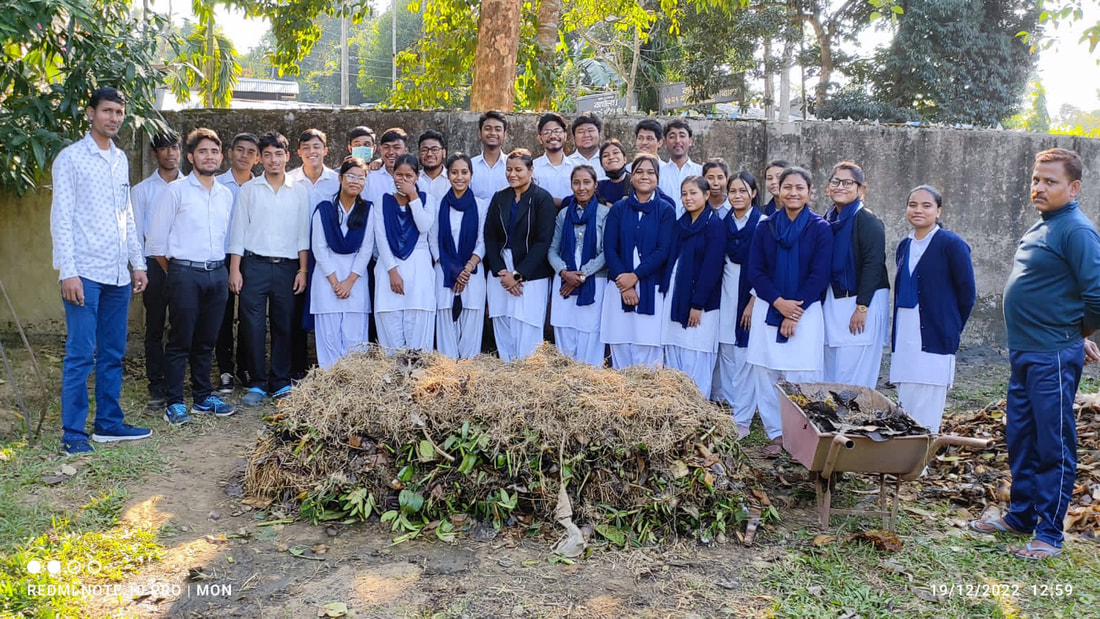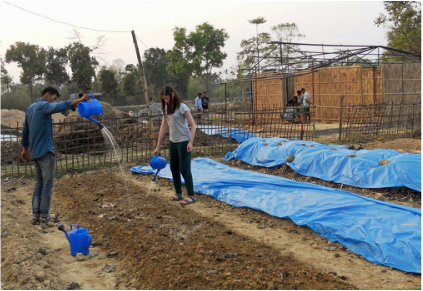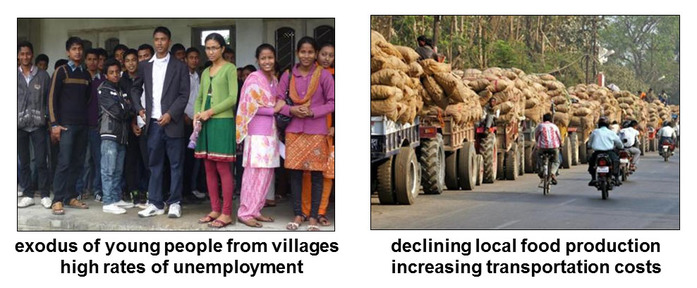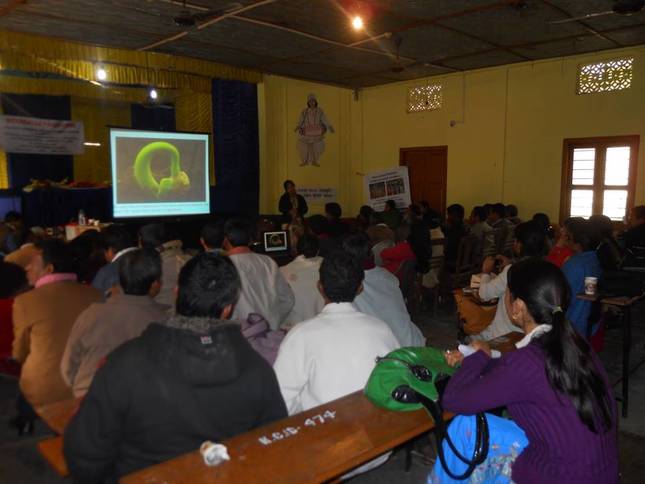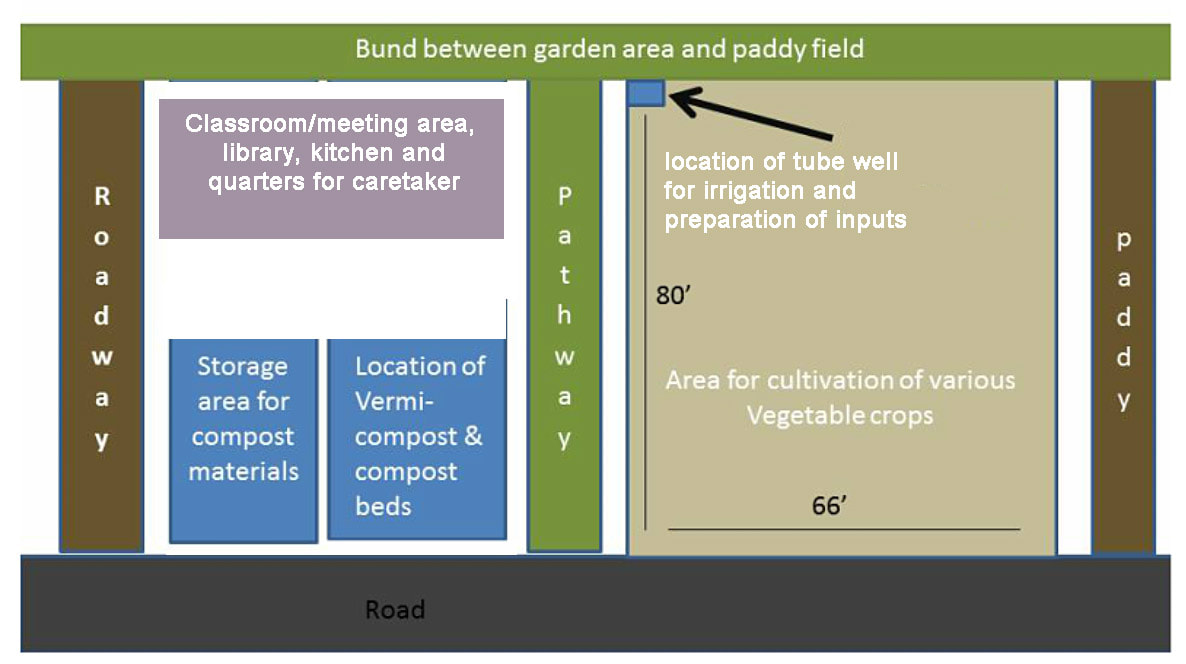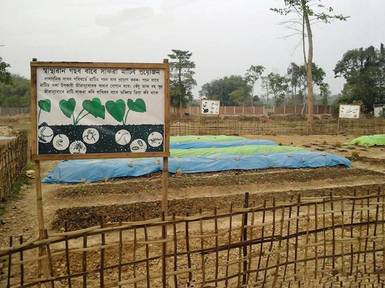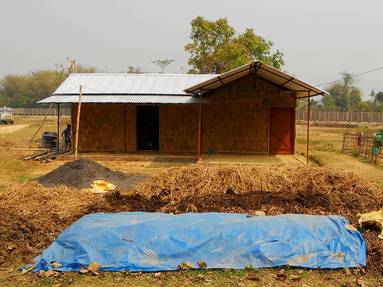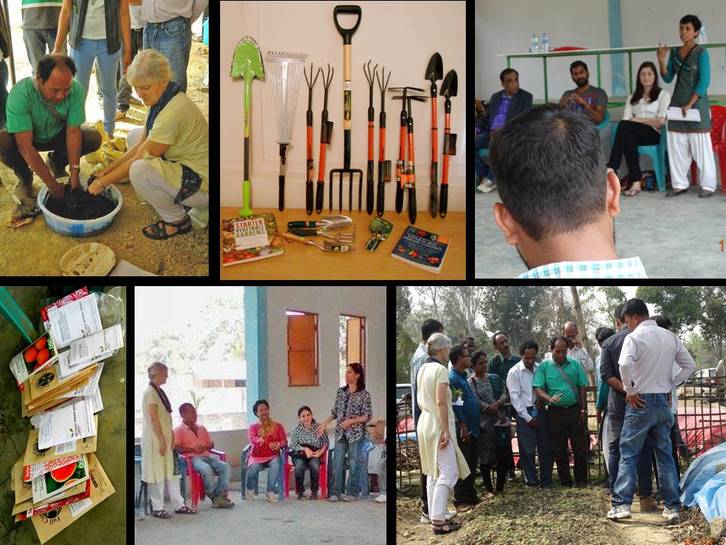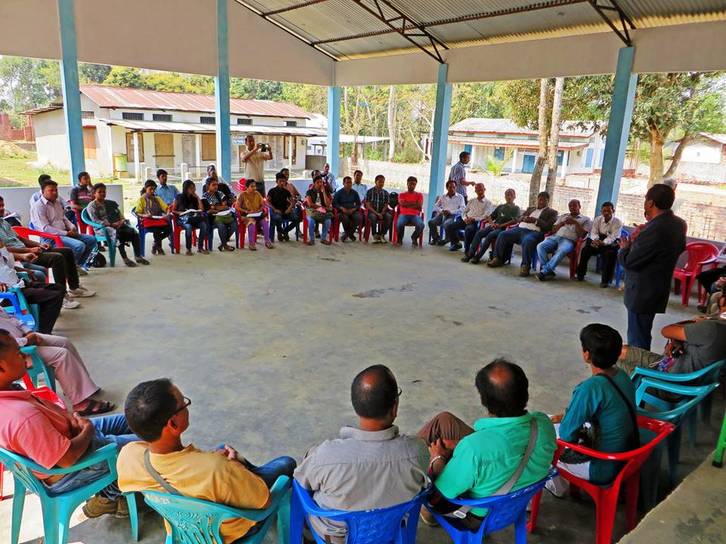GET GROWING!
....an Initiative of Kakojan College, established to Support Sustainable Organic Agriculture
and Tea Cultivation in Assam, India
https://kakojancollege.edu.in/mgarden
....an Initiative of Kakojan College, established to Support Sustainable Organic Agriculture
and Tea Cultivation in Assam, India
https://kakojancollege.edu.in/mgarden
|
Project Description: In 2015, Fertile Ground, in partnership with Kakojan College, and with support of North East Affected Area Development Society, helped initiate a “learning garden” and training centre located on a plot of land about 15 km. east of Jorhat, a major agricultural and tea growing area in Assam. Local vegetables, fruit and grains are grown on the site - and orientation and training in cultivation, marketing and production of organic inputs is provided by resource people familiar with the principles of sustainable organic farming. The centre provides employment to several local people, and offers opportunities for students, NGO's and members of local farming families to learn about organic farming and related topics. |
|
Financial support for development of the demonstration garden came from Rotary Clubs in District 5020, Jorhat Rotary Club (District 3240), and donors in Canada and the US. Fertile Ground has provided funding, guidance and technical support .
Why projects like this are important:
These days, there are few local employment opportunities for students graduating with degrees in fields such as Computer Technology, Engineering, English or Political Science. As a result, many young people from farming families are moving to the cities or leaving the state, and local food production is steadily declining.
These days, there are few local employment opportunities for students graduating with degrees in fields such as Computer Technology, Engineering, English or Political Science. As a result, many young people from farming families are moving to the cities or leaving the state, and local food production is steadily declining.
The Assam state government, Tea Board of India and a number of Indian NGO’s have launched new programs to promote more environmentally-sound agricultural practices. Unfortunately, many of these programs face challenges achieveing their goals because of:
- the lack of affordable, locally available organic inputs, and
- a shortage of trainers and outreach workers with practical, hands-on skills
Intended beneficiaries: Students, farmers, small tea growers, families from the adjacent area, self-help group members, educators and local NGO’s.
- the lack of affordable, locally available organic inputs, and
- a shortage of trainers and outreach workers with practical, hands-on skills
Intended beneficiaries: Students, farmers, small tea growers, families from the adjacent area, self-help group members, educators and local NGO’s.
How this project benefits the community in need: Participants become familiar with the principles and practices of organic farming, including preparation of natural soil amendments like compost, vermicompost and compost tea, as well as natural foirmulas and techniques used to repel insect pests.
They're also made aware of a range of self-employment opportunities, and learn skills that can help meet the growing demand for knowledgeable farm, tea garden and educational outreach workers.
The centre also provides tours and training to farmers, school children and members of local self-helps groups.
Meeting of organic tea growers from various locations in the state, members of Jorhat Rotary Club, NEADS NGO, Kakojan College
principal, faculty and students, and the manager of Adarsh Seuj Prakalpa, Assam's first organic training centre located in Tinsukia.
(Established in 2005, Adarsh Seuj Prakalpa was developed by Digboi Rotary Club and Indian Oil Corporation
in partnership with Fertile Ground.)
To learn more about Adarsh Seuj Prakalpa, click here!
and cllick here to see slide shows of the development of 3 of our training centres/demonstration gardens!
principal, faculty and students, and the manager of Adarsh Seuj Prakalpa, Assam's first organic training centre located in Tinsukia.
(Established in 2005, Adarsh Seuj Prakalpa was developed by Digboi Rotary Club and Indian Oil Corporation
in partnership with Fertile Ground.)
To learn more about Adarsh Seuj Prakalpa, click here!
and cllick here to see slide shows of the development of 3 of our training centres/demonstration gardens!
|
|
